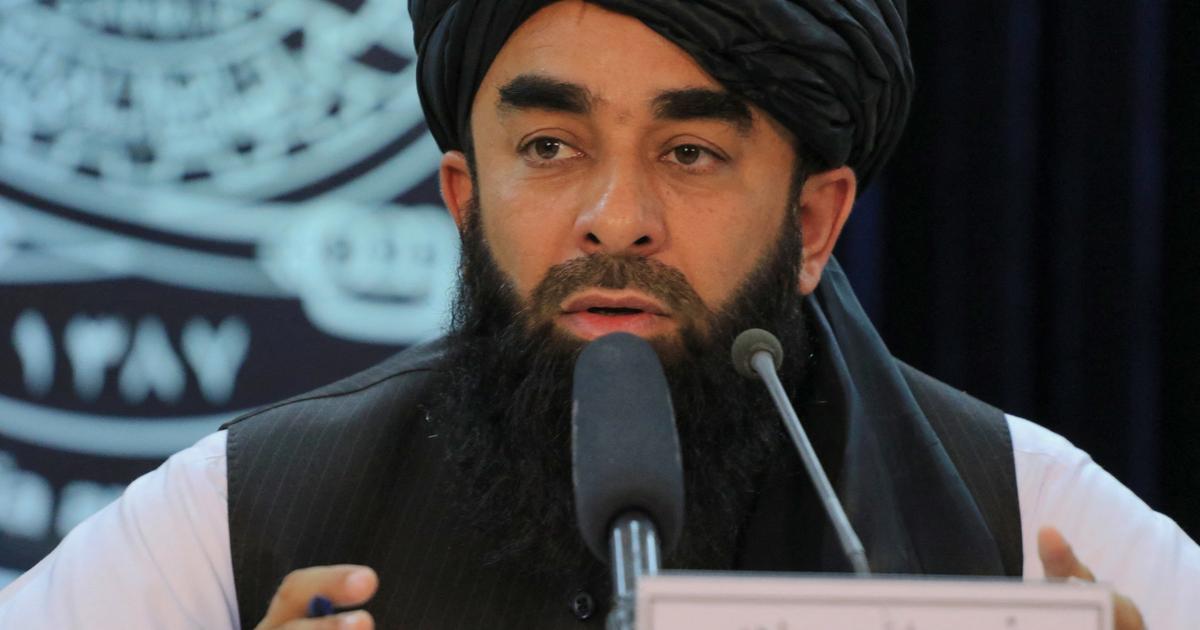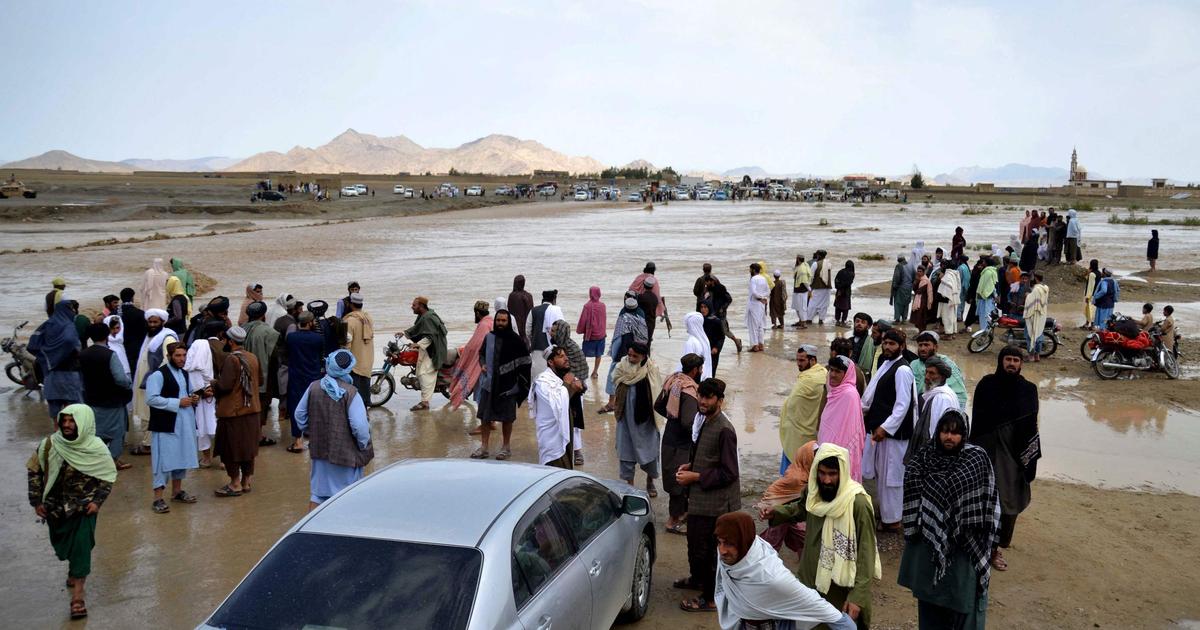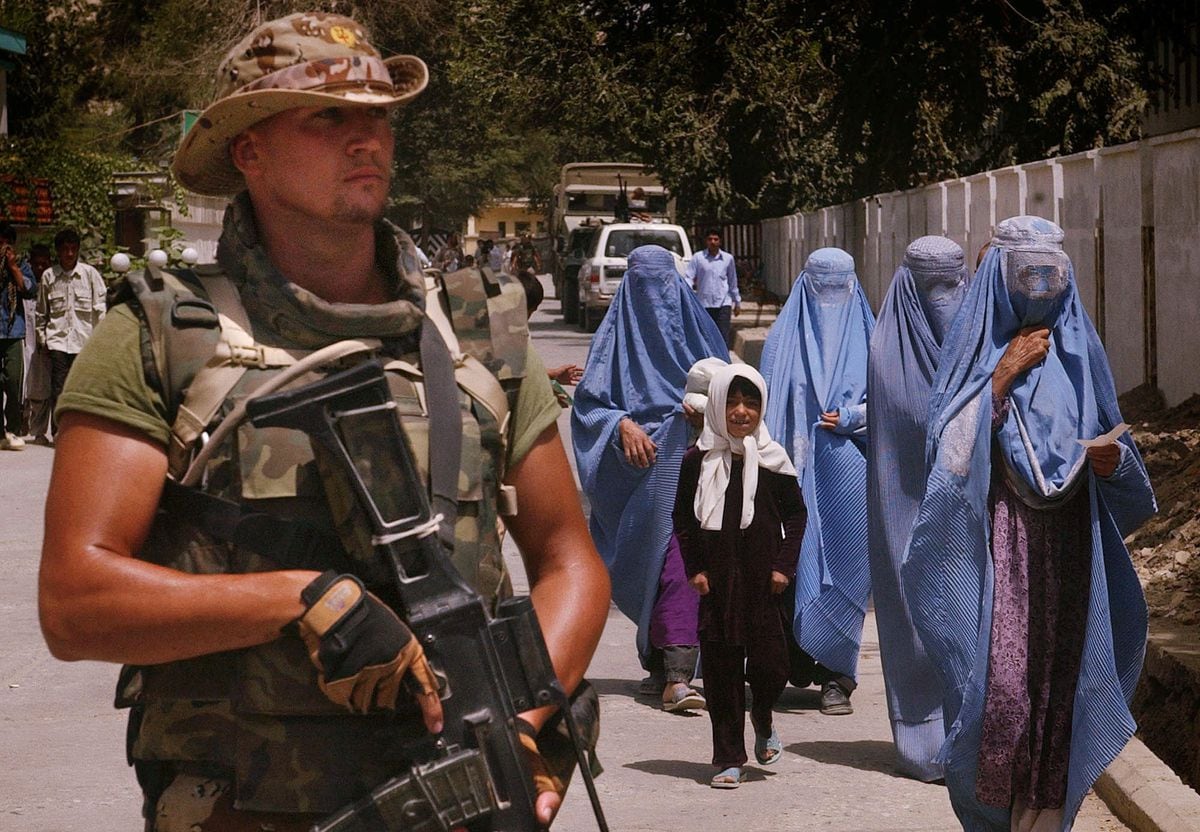German Foreign Minister Heiko Maas uttered a sentence early this summer that is now coming back to haunt the German government.
Responding to biting questions from the opposition about the situation in Afghanistan, Maas said on June 9: "All these questions are based on the assumption that the Taliban will hold the scepter of power in Afghanistan in a few weeks. That is not the assumption I am working from. "
It was a fatal miscalculation on the part of the minister.
Ultimately it would be a matter of days and not weeks before the Taliban seized power in Afghanistan.
A team of DER SPIEGEL reporters has reconstructed the omissions and mistakes that led to the dramatic events of the past few days.
We spoke with government ministers, officials and diplomats and reviewed confidential minutes of meetings, emails and situation reports.
The reporting shows how wrongly many of those responsible in Berlin assessed the situations - and how long they ignored the warning signs.
It provides a chronicle of political failures.
The Germans Realize the Americans Are Withdrawing
It was rather by accident that diplomats at the German Embassy in Kabul took notice of the dramatic changes taking place in the city.
On Saturday, August 14, while driving through the Green Zone, the secured government and diplomatic quarter in Kabul, they noticed that the Americans had quietly withdrawn their protective forces - hundreds of them.
Even the otherwise heavily guarded entrances to the political center of the city were no longer manned by US soldiers, and their armored cars had disappeared.
The Americans had even ceased protecting the roads to the airport.
Only after hectic calls did the German Embassy learned that the US had withdrawn all its forces to its own embassy facility, from which helicopters were already flying American diplomats to the military section of the airport.
That was when it became clear that the US had begun evacuating its embassy.
Ashraf Ghani's Presidential Palace, also located in the Green Zone, was also more or less unprotected.
At 1:34 pm that day, the German mission in Kabul sent an emailed warning to Berlin that the security situation had deteriorated further due to the withdrawal of US forces.
It stated that the German Embassy was entirely dependent on the protection provided by the outer ring of security surrounding the Green Zone.
For that reason, it said, they were considering taking refuge in the military part of the airport as well.
The next day, Germany's deputy ambassador, Jan Hendrik van Thiel, cabled Berlin that the US had asked other Western diplomats "to relocate immediately" to the Kabul airport.
Since it was no longer possible to drive there, the US Embassy recommended that other diplomats go immediately to NATO headquarters in the Green Zone.
At 10:34 am, van Thiel wrote: "We're getting ready to leave! DO WE HAVE THE GREEN LIGHT?"
At 10:36, he wrote: "We will only be reachable by phone for now. We are destroying the IT. Have a nice Sunday, over."
Overtaken By Events
The deputy ambassador's parting salute sounded a bit cynical.
And no wonder given that no one in the German government had foreseen the sudden takeover of Kabul by the Taliban last weekend.
Be it aid workers, military personnel or diplomats, all were caught off guard by the events.
Even after spending so much money, energy and expertise in Afghanistan over the past 20 years, they lacked a sense for the dynamics of developments at the decisive moment.
Enlarge image
German Defense Minister Annegret Kramp-Karrenbauer and Foreign Minister Heiko Maas
Photo: KAY NIETFELD / AFP
Not even Germany's foreign intelligence service, the BND, could be relied upon in the end.
To be sure, the service's experts had been warning for years that Afghanistan might collapse.
They pointed out that neither the military nor the political apparatus were stable.
But sources in the security community say that neither the Foreign Ministry nor the Defense or Development ministries had been receptive to those warnings.
Several people familiar with the proceedings over the years told DER SPIEGEL they had experienced "at times frustrating moments."
Analysts at the BND painted a bleak picture last December, eight months before the fall of Kabul, when they predicted the Taliban would come to power in Afghanistan and establish an "Emirates 2.0."
But the agency's warning had no effect.
When it came to assessing how quickly the Taliban would conquer the country, even the staff at the BND got it wrong.
Last Friday, two days before the remaining German diplomats fled to Kabul airport, a BND representative in the Berlin crisis team stated, according to the minutes of the meeting, that the Taliban leadership had "no interest in a military capture of Kabul."
The BND assumed that the Taliban didn't want a war because the Americans and Turks were still protecting Kabul.
A negligent failure
Instead, the intelligence agency anticipated that Taliban fighters would maintain the ring they had drawn around the capital until the government gave up.
But the intelligence official did qualify that statement.
He noted that the influence of the Taliban leadership, meaning the political arm of the Islamists in Doha, Qatar, on the fighters is "not unlimited."
In addition, other factors could also accelerate the fall of Kabul, such as an expedited withdrawal of international soldiers from the Green Zone or defections of the Afghan elite.
The end of his presentation testified to the fact that the situation was already tense for the intelligence agency.
Speaking to the assembled officials, the BND representative urgently requested that as many Afghan employees of the foreign intelligence agency as possible be placed in the protection program for local hires, so they could get out of Afghanistan quickly.
Related Articles
Local Hires Stranded in Afghanistan: "They Don't Care About Me. They Don't Care About My Life!" By Matthias Gebauer, Muriel Kalisch, Steffen Lüdke and Laurenz Schreiner
A Wolf in Sheep's Clothing: Fears Justified as Taliban Secures Power in Afghanistan An Analysis by Christoph Reuter
As surprising as the flight of Afghan President Ashraf Ghani and the abandonment of the Green Zone by the Americans may have been, documents obtained by DER SPIEGEL back up one of the central accusations against the German government.
It has negligently failed in its duty to take care of the thousands of Afghans and their families who have worked for the Germans as drivers, cooks, translators and experts over the past 20 years.
The government organs in question have known for years that these Afghan workers are in mortal danger.
On April 29, representatives of the German Interior Ministry, the Development Aid Ministry and the Foreign Ministry met to discuss the "local hire procedures."
Two weeks earlier, US President Joe Biden announced the withdrawal of American troops by Sept. 11. Because Biden's predecessor, Donald Trump, had promised an earlier date, the Taliban began issuing threats.
The Islamists warned that the Americans bore responsibility for anything that might happen.
Critics stall action
According to the minutes of the meeting in Berlin, the crucial problems were all discussed.
The Defense Ministry representative said they should expect visa requests from 1,500 local hires over the next two months.
But a large number of them had no Afghan passports or other forms of identification.
Without them, the Foreign Ministry explained, it would not be possible for them to travel on commercial flights.
Then, though, the doubters spoke up. In the months that would come, their arguments would ensure that as many local hires as possible were prevented from departing for Germany quickly and safely.
Enlarge image
German Development Minister Gerd Müller:
"A chain reaction could be triggered."
Photo: Britta Pedersen / dpa
Gerd Müller, the head of the Federal Ministry for Economic Cooperation and Development (BMZ), was one of the first to slam on the brakes. Representatives of his ministry argued that there must be "no uncertainty" in the whole process in Afghanistan, because "otherwise a chain reaction could be triggered among local hires of the BMZ that could also have an international context." In other words: The ministry feared that many local aid workers would flee the country. But the agency was determined to continue its development work in Afghanistan - work that cannot be done without local staff.
The Foreign Ministry suggested considering a "visa on arrival" option - meaning that residence permits could be issued after Afghans arrived in Germany rather than having to go through lengthy procedures prior to departure.
According to the minutes, the Interior Ministry rejected the idea, saying there should be "no blanket solution without an individual risk assessment."
A mandatory security check would also have to be "completed before entry."
The idea of using chartered jets to get local staff out of the country was also rejected.
That would send a "wrong signal" said the representative of the Defense Ministry.
Defense Minister Asks Merkel for Help
A few days later, the Taliban launched their military offensive.
By the beginning of June, fighting was underway in 26 of the 34 Afghan provinces.
It was at that time that Foreign Minister Maas, speaking before parliament, rejected the assumption that the Taliban would seize power in Afghanistan in a matter of weeks.
In mid-June, Defense Minister Annegret Kramp-Karrenbauer of the center-right Christian Democratic Union (CDU) asked Chancellor Angela Merkel for help.
The rules currently held that only local hires who had for the German armed forces in the past two years would be allowed to move to Germany if they requested.
She wanted to extend that to include all local hires going back to 2013.
Kramp-Karrenbauer has accused the Foreign Ministry, the Interior Ministry and, in particular, the Development Ministry of resisting that eligibility expansion.
Development Minister Müller had written to Kramp-Karrenbauer to reject the idea as "highly problematic."
In terms of development cooperation, they were dealing with "probably more than 50,000 people," Müller wrote.
A decision like that could have an "enormous pull effect" and overload the "processing structures on the ground."
Müller apparently considered it possible to continue development work despite the Taliban's advance.
It was necessary to "ensure that what has been achieved in the last 20 years is safeguarded for the Afghan people."
During a cabinet meeting on June 16, Merkel took the ministers in question aside and urged them to reach an agreement quickly. Pressure was also coming from elsewhere.
At a conference of the federal interior minister and his counterparts at the state level from June 16 to 18, some state interior ministers, in particular Boris Pistorius of the center-left SPD from Lower-Saxony, called on federal Interior Minister Horst Seehofer to act more decisively. The politician, a member of the center-right Christian Social Union (CSU), the Bavarian sister party to the CDU, has a different recollection of the meeting. He denies that he opposed more generous rules for local hires being able to come to Germany. According to his ministry, it was the Foreign Ministry and the BMZ that had rejected flying local hires out earlier - in order to prevent destabilizing the Afghan government and sending the wrong message to the Taliban. But there was one thing that Seehofer's people were still reciting like a mantra at that point:The local hires should pay for their own flights to Germany.
By then, the Taliban were conquering one Afghan region after the other.
As of June 22, they had captured 50 of some 400 districts, according to the UN special envoy.
On July 2, US troops secretly withdrew from Bagram Air Base near Kabul.
The base had been their military headquarters in Afghanistan.
In a situation report, the Foreign Office wrote that the Taliban are seeking to "consolidate and expand" their realm of influence.
It "is difficult to assess at present" how the military situation would develop after the withdrawal of the international troops.
Merkel Takes Her Ministers To Task
On July 13, the human rights spokespersons of the parliamentary groups of the CDU / CSU, the SPD, the Greens and the business-friendly Free Democrats sent a joint letter to the chancellor.
In it, they wrote, "we are appealing to you urgently and therefore publicly because time is very short and Germany is in danger of betraying its commitments to local hires in Afghanistan."
A week later, Merkel's cabinet met on July 21. By then, the Taliban already had control of half of all districts in the country.
The chancellor once again took the ministers involved to task.
Merkel asked Michelle Müntefering, a senior official in the Foreign Ministry, to explore the option of renting charter planes at government expense to get local hires out.
"I want to provide a way out for the people who have helped us a great deal," Merkel said at her summer press conference in Berlin, one day after the meeting of her cabinet. "I am very committed to finding pragmatic solutions if they are at our disposal, and that also means that a person also can't fail to get a flight because they don't have the money. "
But after those words, more precious time was lost.
Enlarge image
Angela Merkel at her summer press conference on June 22
Photo: imago images / Political-Moments
On July 30, the ministers in question met once again for a departmental meeting.
According to the United Nations, 2,400 Afghan civilians had been killed or injured within the previous two months, the highest number of casualties since they began keeping those records in 2009. Nevertheless, officials continued to insist that local hires obtain their own tickets for scheduled flights .
"At this time, in view of the available scheduled flights, the departments do not believe there is a need for charter measures," the meeting minutes state.
The defense, interior and development ministries stated that they considered "a booking on scheduled flights to be pragmatic in view of the rather small number of families currently willing to leave and in need of support in their respective areas."
The Taliban Captures Kunduz
Despite the dramatic gains in territory that had been made by the Taliban in the meantime, Interior Minister Seehofer sent a letter together with five other government ministers from EU countries to Brussels urging that, in principle, rejected asylum-seekers should continue to be deported back to Afghanistan.
Criminals, especially - but also to send the message deterring migrants from Afghanistan from setting off for Europe.
On August 6, the first provincial capital fell to the Taliban, and two days later they captured Kunduz in the north, where Germany's armed forces, the Bundeswehr, had maintained a base until 2013.
In a briefing by the intelligence services at Merkel's Chancellery, the BND would not provide a prediction on the morning of August 10 as to when the fall of Kabul could be anticipated.
But intelligence officials expected the city would be able to hold out for another three months.
Only a few hours later at the German Embassy in Kabul, news from the US was causing great concern.
The
Washington Post
had reported that the US intelligence agencies had radically revised their assessment of the Taliban's advance.
According to the latest estimates, the capital of Kabul could fall in 30 to 90 days - and with it the government of President Ghani.
Deputy Ambassador van Thiel sat down at his office computer in Kabul.
He wrote to the Foreign Ministry in Berlin that the new assessment was causing panic within the government in Kabul.
Not only President Ghani, but also the security forces interpreted the assessment as the latest evidence that the US was finally giving up on Afghanistan and would not intervene even if the Taliban invaded the capital.
Van Thiel urged that the staff of the German Embassy be immediately reduced to the absolute minimum.
In addition, he wrote, efforts to evacuate Afghan local hires needed to be maximized.
Van Thiel's mail was very clear.
The diplomat warned of a rapid deterioration of the security situation.
The next day, August 11, Horst Seehofer issued a temporary ban on deportations to Afghanistan.
On August 13, four more provincial capitals fell to the Taliban, including Kandahar and Herat.
At this point, Seehofer was pushing for swift action: "The situation in Afghanistan is becoming increasingly threatening. Whether charter flights or visa issuance after arrival in Germany: I support all measures that enable the rapid departure of our local hires and their families," he announced at a press release on the same day.
The crisis team at the Foreign Ministry then met to discuss the situation in Afghanistan.
Deputy Ambassador van Thiel addressed the group from Kabul.
He said the first countries, including Japan and Canada, had already evacuated their embassies near the German mission at the edge of the Green Zone.
He said the Americans also planned to reduce their staff to a minimum by the end of the month, but would still be able to guarantee the security of the entire diplomatic quarter, with the soldiers stationed with them in a crisis.
A representative of the BND spoke after van Thiel.
He said the "takeover of Kabul" by the Taliban was "rather unlikely before 9/11."
He said officials there couldn't imagine that the US would allow the Taliban flag to fly over the Presidential Palace on the 20th anniversary of the 9/11 terrorist attacks.
Only 48 hours later, the Taliban had seized control of the Afghan capital on Sunday, August 15.
Meanwhile, Foreign Minister Maas, who had still been rejecting critical questions in parliament in June, had now publicly admitted the massive misjudgment of recent weeks.
"There is no playing this down: All of us - the federal government, the intelligence services, the international community - we have misjudged the situation," the SPD politician said on Monday. "Honesty demands that we formally admit that to be case. "
BND head Bruno Kahl also appeared contrite when he answered questions from members of parliament at the Bundestag in a closed session in the middle of the week.
One thing seems to be bothering the head of the intelligence service more than anything else: Despite the fact that the BND taps phones and monitors emails extensively in Afghanistan, it was still caught off guard by the developments.
The agency was unaware of the Taliban's preparations.
Nor did it have any idea that the Afghan president would just leave the country.
The only consolation for the Germans was that other Western countries had also been completely in the dark.




/cloudfront-eu-central-1.images.arcpublishing.com/prisa/KA3LQ5ZEAFEQXOIZXJEEVDUZUQ.jpg)




